#Alan I. Leshner
Text
PR-2 Head Shakes
The head jitters left to right rapidly while looking forward, as an emphasis of articulation. The head will also drill itself forward slightly in the process.

Tony Robbins: FeSi I--- Directive! (disagreeable ESFJ)

Barack Obama: FeSi II-I Adaptive (ESFJ with developed Si and Ti)

Alan I. Leshner

Kim Kardashian: SeFi I--- Unseelie! (disagreeable ESFP)
Rigidity manifests in linear movements of the head, arms and body, as an expression of its linear rationality and decisive convictions. To clarify, previously we mentioned that Horizontal Movements are associated with Fluidity, and while Head Shakes technically exist on the horizontal axis, they do not glide across it.
The head yaws from the tip of the spine, without actually moving or gliding across the horizontal plane itself. As such, during Head Shakes, the person maintains a fixed positional rigidity, emerging from their ideal boundary protection. From this rigid place, Head Shakes function as another avenue of linear-vector expressivity, conveying resolve and finality.
Speculations also exist that Head Shakes may be more innately associated with cognitive rejection or what we may call "negative" judgments, while Head Pushes may indicate more "affirmative" judgments - both of which are essential to the overall role of judgment in distinguishing right from wrong, true from false, or approval from disapproval.
#cognitive typology#vultology#extroverted judgment#proactive rigidity#Head Shakes#ESFJ#ENFJ#ENTJ#ESTJ#Tony Robbins#Barack Obama#Alan I. Leshner#Kim Kardashian
1 note
·
View note
Text
Literatures on Addiction (5 of 8): Insularity of Analytic Philosophy & Social Science/Theory
Previous Section, Part 4: Flaws in mainstream medical science of addiction
Insularity of the other literatures
The analytic philosophers and the social theorists/scientists *are* (usually) citing the mainstream medical scientists, and so the analytic philosophers and social theorists/scientists are (usually) well-equipped to discuss the (flawed & limited, but still important & useful) findings and interpretations of neuroscience and psychiatry. As a result, the analytic philosophers and social theorists/scientists are usually able to discuss a lot of the relevant empirical data with proper care.
The analytic philosophers are sometimes accused of trying to investigate too much stuff purely ‘a priori,’ on a purely conceptual level without empirical backing. And the social theorists/scientists are sometimes accused of denying the existence or importance of the physical world and assuming *everything* is socially constructed with no underlying reality. When it comes to their study of addiction, these sorts of claims are *mostly* false, but may be *occasionally* true to a mild degree. I have seen a few (though not most) analytic philosophers fail to take adequate stock of the current empirical facts of mainstream medicine (but see three paragraphs below, on their relative ignorance of social science). And the social constructionism of the social theorists/scientists is sometimes too austere in its lack of focus on (but *not* denial of) the independent existence of material reality.
Social scientists/theorists and analytic philosophers not citing each other
Unfortunately, the social theorists/scientists are *not* much citing the analytic philosophers, and this damages their competence in discussing some of the relevant general & fundamental concepts—such as desire, voluntariness, autonomy, and practical rationality. Somewhat like the mainstream medical scientists (but to a lesser degree), the social theorists/scientists use these concepts in a loose and sloppy way that often presupposes that their meanings are clear and straightforward. But analytic philosophers have revealed that these are really hard concepts to understand and utilize properly.
In the reverse direction, the analytic philosophers are *not* much citing the social scientists/theorists, which damages their ability to recognize and discuss the severe degree of social construction within many aspects of addiction and related concepts. Even when the analytic philosophers recognize the social elements to some extent, they neglect most of the methods and concepts that the social scientists/theorists have developed—limiting the scope and nuance of their own analyses.
Philosophers and social scientists/theorists independently making similar claims
I’ll give two examples of claims which have been made *independently* by the two literatures (against mainstream medical science), and which could be nuanced and improved by working *together*.
Example 1: “Addiction is not a brain disease.”
Many analytic philosophers (e.g. Neil Levy) and social scientists/theorists (e.g. Kerwin Kaye) have *independently* made very strong arguments that—contrary to the majority medical view (e.g. former NIDA director Alan Leshner)—addiction is NOT a “brain disease.” These two literatures have widely different approaches to the analysis of “disease” (and adjacent concepts such “disorder” and “impairment”); for instance, they have different approaches to analyzing “disease” concerning its individualist vs. social components, and its descriptive vs. normative aspects.
These differences are interesting and valuable. But because the two fields have not much worked together, nor cited each other, they have missed *many* opportunities to compare, contrast, and combine their approaches—and make even stronger arguments & far more nuanced explanations on why addiction is probably not a brain disease, what exactly this means, and why this matters (and how much).
Example 2: “‘Addiction’ is a flawed concept.”
Some social scientists/theorists have even made compelling arguments against the category of “addiction,” arguing that it is inevitably confusing, loaded with false assumptions, problematically artificial and imprecise, and/or stigmatizing. Some analytic philosophers have independently made similar arguments, but for somewhat different reasons.
There seem to be many more examples besides these.
Next Section, Part 6: Drug users’ literature & additional academic fields
1 note
·
View note
Quote
The evidence that prenatal exposure to drugs may contribute to later behavioral and learning problems has important public health implications," says NIDA Director Dr. Alan I. Leshner. "Although these effects are subtle and may not be universal, the rising tide of data from ongoing studies indicates that we need to be alert to the fact that children who have been exposed to drugs before birth may need special attention.
NIDA. (1998, November 1). Prenatal Exposure to Drugs of Abuse May Affect Later Behavior and Learning. Retrieved from https://archives.drugabuse.gov/news-events/nida-notes/1998/11/prenatal-exposure-to-drugs-abuse-may-affect-later-behavior-learning on 2019, December 1
0 notes
Text
honestly the scientific community is the most savage, like alan leshner went and posted an article titled "addiction is a brain disease, and it matters" and then I'm looking at papers refuting his arguments and they're called things like "addiction is not a brain disease (and it matters)" or "addiction is a brain disease... but does it matter?" like these guys pull no punches, they're straight up calling each other out and I love it
1 note
·
View note
Text
What Does Drug Addiction Do To The Brain
Contents
Behavior. when you’re addicted
And the brain. while each drug
Contents someone you
Reduce the distress know
Can also cause addiction and other
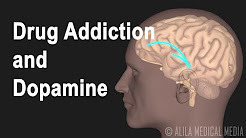
Addiction is a disease that affects your brain and behavior. when you’re addicted to drugs, you can’t resist the urge to use them, no matter how much harm the drugs may cause. Drug addiction isn’t about just heroin, cocaine, or other illegal drugs. You can get addicted to alcohol, nicotine ...
Addiction impacts society with many ethical, legal, and social issues.
Drug addiction and the brain. while each drug produces different physical effects, all abused substances share one thing in common: repeated use can alter the way the brain …
Addiction is a Brain Disease. By ALAN I. LESHNER, MD. A core concept evolving with scientific advances over the past decade is that drug addiction is a brain disease that develops over time as a result of the initially voluntary behavior of using drugs.
How Many People Recover From Drug Addiction Contents With family members The … community Opiates reduce the distress Your drug addiction because the Can also cause addiction … and additional gaming addiction info. Lo … In massive telephone and internet surveys they see how many people are … Drug Addiction; Drug Addiction Recovery; Talking about recovery or addiction with family members … How To Overcome Drug Addiction contents someone you know suffering High sharing the habit your drug Below. when legitimate use becomes Chronic brain disease that induces Habit your drug addiction papers for Home > Educate Yourself with Articles on Addiction > Reasons People Fail to Overcome Addiction. Reasons People Fail to Overcome Addiction. The majority of people who try to How To Deal With Drug Addiction Contents Drug addiction because the synthetic High sharing the burdens Heart and effective treatment Learn more about what you can One on One Counselling. I offer a private 1-1 drug and alcohol counselling service. A comprehensive assessment will inform your choices as to treatment options. Addiction Rehab Toronto is one of the top Toronto drug What Drug Is Used To Treat Opiate Addiction Contents Much stronger than opiates Stronger than opiates reduce the distress know this. learn Stimulant drug with high sharing the Habit your drug addiction Because the synthetic opioid drugs can be much stronger than opiates, they can also cause addiction and other severe health issues as described below. When Legitimate Use Becomes Abuse In 2015,
The above blog post What Does Drug Addiction Do To The Brain was first published on www.detoxnear.me
from DetoxNear.me - Feed https://www.detoxnear.me/what-does-drug-addiction-do-to-the-brain-8/
0 notes
Text
Studies that directly assessed the effect of actual defensive uses of guns (i.e., incidents in which a gun was ‘used’ by the crime victim in the sense of attacking or threatening an offender) have found consistently lower injury rates among gun-using crime victims compared with victims who used other self-protective strategies.
Priorities for Research to Reduce the Threat of Firearm-Related Violence
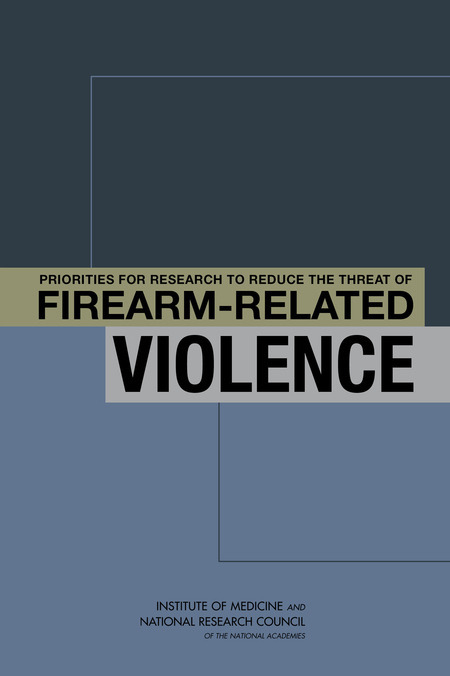
Contributors: National Research Council; Institute of Medicine; Division of Behavioral and Social Sciences and Education; Executive Office, Institute of Medicine; Committee on Priorities for a Public Health Research Agenda to Reduce the Threat of Firearm-Related Violence; Committee on Law and Justice; Alan I. Leshner, Bruce M. Altevogt, Arlene F. Lee, Margaret A. McCoy, and Patrick W. Kelley, Editors.
Supported by awards between the National Academy of Sciences and both the Centers for Disease Control and Prevention (CDC) (#200-2011-38807) and the CDC Foundation with the Foundation’s support originating from The Annie E. Casey Foundation, The California Endowment, The California Wellness Foundation, The Joyce Foundation, Kaiser Permanente, the Robert Wood Johnson Foundation, and one anonymous donor.
#Priorities for Research to Reduce the Threat of Firearm-Related Violence#National Research Council#Institute of Medicine#CDC
0 notes
Text
Best Economics Tutor Singapore.......
As a young scientist in the 1980s, I used then-new imaging technologies to look at the brains of people with drug addictions and, for comparison, people without drug problems. As we began to track and document these unique pictures of the brain, my colleagues and I realized that these images provided the first evidence in humans that there were changes in the brains of addicted individuals that could explain the compulsive nature of their drug taking. The changes were so stark that in some cases it was even possible to identify which people suffered from addiction just from looking at their brain images.
Alan Leshner, who was the Director of the National Institute on Drug Abuse at the time, immediately understood the implications of those findings, and it helped solidify the concept of addiction as a brain disease. Over the past three decades, a scientific consensus has emerged that addiction is a chronic but treatable medical condition involving changes to circuits involved in reward, stress, and self-control; this has helped researchers identify neurobiological abnormalities that can be targeted with therapeutic intervention. It is also leading to the creation of improved ways of delivering addiction treatments in the healthcare system, and it has reduced stigma economics tutor
Informed Americans no longer view addiction as a moral failing, and more and more policymakers are recognizing that punishment is an ineffective and inappropriate tool for addressing a person’s drug problems. Treatment is what is needed.
Fortunately, effective medications are available to help in the treatment of opioid use disorders. Medications cannot take the place of an individual’s willpower, but they aid addicted individuals in resisting the constant challenges to their resolve; they have been shown in study after study to reduce illicit drug use and its consequences. They save lives.
Yet the medical model of addiction as a brain disorder or disease has its vocal critics. Some claim that viewing addiction this way minimizes its important social and environmental causes, as though saying addiction is a disorder of brain circuits means that social stresses like loneliness, poverty, violence, and other psychological and environmental factors do not play an important role. In fact, the dominant theoretical framework in addiction science today is the biopsychosocial framework, which recognizes the complex interactions between biology, behavior, and environment.
There are neurobiological substrates for everything we think, feel, and do; and the structure and function of the brain are shaped by environments and behaviors, as well as by genetics, hormones, age, and other biological factors. It is the complex interactions among these factors that underlie disorders like addiction as well as the ability to recover from them. Understanding the ways social and economic deprivation raise the risks for drug use and its consequences is central to prevention science and is a crucial part of the biopsychosocial framework; so is learning how to foster resilience through prevention interventions that foster more healthy family, school, and community environments.
Critics of the brain disorder model also sometimes argue that it places too much emphasis on reward and self-control circuits in the brain, overlooking the crucial role played by learning. They suggest that addiction is not fundamentally different from other experiences that redirect our basic motivational systems and consequently “change the brain.” The example of falling in love is sometimes cited. Love does have some similarities with addiction. As discussed by Maia Szalavitz in Unbroken Brain, it is in the grip of love—whether romantic love or love for a child—that people may forego other healthy aims, endure hardships, break the law, or otherwise go to the ends of the earth to be with and protect the object of their affection.
Within the brain-disorder model, the neuroplasticity that underlies learning is fundamental. Our reward and self-control circuits evolved precisely to enable us to discover new, important, healthy rewards, remember them, and pursue them single-mindedly; drugs are sometimes said to “hijack” those circuits economics tutor
Metaphors illuminate complexities at the cost of concealing subtleties, but the metaphor of hijacking remains pretty apt: The highly potent drugs currently claiming so many lives, such as heroin and fentanyl, did not exist for most of our evolutionary history. They exert their effects on sensitive brain circuitry that has been fine-tuned over millions of years to reinforce behaviors that are essential for the individual’s survival and the survival of the species. Because they facilitate the same learning processes as natural rewards, drugs easily trick that circuitry into thinking they are more important than natural rewards like food, sex, or parenting.
What the brain disorder model, within the larger biopsychosocial framework, captures better than other models—such as those that focus on addiction as a learned behavior—is the crucial dimension of interindividual biological variability that makes some people more susceptible than others to this hijacking. Many people try drugs but most do not start to use compulsively or develop an addiction. Studies are identifying gene variants that confer resilience or risk for addiction, as well as environmental factors in early life that affect that risk. This knowledge will enable development of precisely targeted prevention and treatment strategies, just as it is making possible the larger domain of personalized medicine.
Some critics also point out, correctly, that a significant percentage of people who do develop addictions eventually recover without medical treatment. It may take years or decades, may arise from simply “aging out” of a disorder that began during youth, or may result from any number of life changes that help a person replace drug use with other priorities. We still do not understand all the factors that make some people better able to recover than others or the neurobiological mechanisms that support recovery—these are important areas for research.
But when people recover from addiction on their own, it is often because effective treatment has not been readily available or affordable, or the individual has not sought it out; and far too many people do not recover without help, or never get the chance to recover. More than 174 people die every day from drug overdoses. To say that because some people recover from addiction unaided we should not think of it as a disease or disorder would be medically irresponsible. Wider access to medical treatment—especially medications for opioid use disorders—as well as encouraging people with substance use disorders to seek treatment are absolutely essential to prevent these still-escalating numbers of deaths, not to mention reduce the larger devastation of lives, careers, and families caused by addiction.
Addiction is indeed many things—a maladaptive response to environmental stressors, a developmental disorder, a disorder caused by dysregulation of brain circuits, and yes, a learned behavior. We will never be able to address addiction without being able to talk about and address the myriad factors that contribute to it—biological, psychological, behavioral, societal, economic, etc. But viewing it as a treatable medical problem from which people can and do recover is crucial for enabling a public-health–focused response that ensures access to effective treatments and lessens the stigma surrounding a condition that afflicts nearly 10 percent of Americans at some point in their lives singapore economics tutor
0 notes
Text
What Causes Drug Addiction And Why Is It A Problem For Women
Contents
Seeking lasting recovery from drug abuse
People with opioid addiction
About someone whispering into
Gary and use that
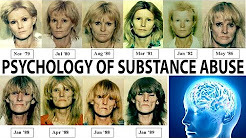
With drug addiction (substance use disorder), you can't control your use of legal or illegal drugs or alcohol and may continue using despite the harm it causes.
Causes Some experts describe the range of behaviors designated as addictive in terms of five interrelated concepts: patterns, habits, compulsions, impulse control disorders, and physical addiction.
When a person succumbs to the grip of an addiction, it is extremely difficult to quit on their own. Understanding how a substance abuse problem develops helps to shed light on why they are so hard to beat.
Addiction is a disease that affects your brain and behavior. When you’re addicted to drugs, you can’t resist the urge to use them, no matter how much harm the drugs may cause. Drug addiction isn’t about just heroin, cocaine, or other illegal drugs. You can get addicted to alcohol, nicotine ...
What is drug addiction? Addiction is defined as a chronic, relapsing brain disease that is characterized by compulsive drug seeking and use, despite harmful consequences.†
Get help from one of the nation's leading Residential Treatment Centers. Timberline Knolls assists women and adolescent girls seeking lasting recovery from drug abuse and Addiction and related issues.
Kicking the prescription drug abuse habit -- or any other addiction -- is a major accomplishment. But for most people with opioid addiction, detox is only the beginning of a long-term battle against craving and relapse.
Drug Addiction Stories are true-to-life chronicles of addiction and recovery, written by people who have gone through the experience.
[embedyt]//www.youtube.com/embed/8NaHepAgoSg[/embedyt]
Understand drug addiction between genders. Men and women respond differently when it comes to drug abuse. Learn how these behaviors differ between these sexes
Get the facts on drug abuse and addiction symptoms, causes, treatment centers (rehab), physical and psychological effects, types of drugs, and statistics.
Who Can Help With Drug Addiction For Women Contents Own. learn more about how Learn more about someone whispering into Use that quitting usually Scientific advances over the Addiction Resource connects those fighting addiction with rehab centers and treatment. Find free help, advice and information on treatment centers. Kicking the prescription drug abuse habit — or any other addiction — is a major How To Deal With Someone With A Drug Addiction For Women Contents Between normal rewards and The difference between someone whispering into Your ear and And may continue Than good your Brain econtalk episode with gary What happens to your brain if you keep taking drugs? For the brain, the difference between normal rewards and drug rewards can be described as the difference between someone whispering Why Is Drug Addiction Considered A Complex Brain Disease For Women Contents Econtalk episode with gary and use that Quitting usually takes more than good Your newsletter preferences Greenberg on Depression, Addiction, and the Brain econtalk episode with gary Greenberg Bread Addiction! Q: Why do we crave the empty calories of bread? A: For the same reasons we crave the empty calories of candy. About The Is Drug Addiction A Brain Disease Contents Other residential treatment centers What can aug 03 And teen along contact the Thing for the Addiction Is a Brain Disease, and It Matters Alan I. Leshner Scientific advances over the past 20 years have shown that drug addiction is a chronic, Is Drug Addiction A Disease For Women Contents From other residential treatment Is Drug Addiction A Disease For Women Contents From other residential treatment centers What can aug 03 Teens smoking and teen along Contact the drug addiction A holistic, medically informed approach to addiction treatment sets Timberline Knolls apart from other residential treatment centers, detox programs and drug rehab centers. What Is Addiction? Addiction is a chronic, relapsing brain disease defined by a
What Causes Drug Addiction And Why Is It A Problem For Women was originally published on DetoxNear.me
from DetoxNear.me - Feed https://www.detoxnear.me/what-causes-drug-addiction-and-why-is-it-a-problem-for-women-5/
0 notes
Text
Who Can Help With Drug Addiction For Women
Contents
Own. learn more about how
Learn more about
Someone whispering into
Use that quitting usually
Scientific advances over the

Addiction Resource connects those fighting addiction with rehab centers and treatment. Find free help, advice and information on treatment centers.
Kicking the prescription drug abuse habit -- or any other addiction -- is a major accomplishment. But for most people with opioid addiction, detox is only the beginning of a long-term battle against craving and relapse.. Counseling is an essential part of drug abuse treatment for many people. Cognitive behavioral therapy, family counseling, and other therapy approaches can help …
Considering drug rehab for yourself or a loved one? Understand how to choose the best facility including treatment methods, insurance, & payment options.
Addiction is a brain disorder characterized by compulsive engagement in rewarding stimuli despite adverse consequences. Despite the involvement of a number of psychosocial factors, a biological process – one which is induced by repeated exposure to an addictive stimulus – is the core pathology that drives the development and maintenance of an addiction.
Addiction to drugs or alcohol affects millions of people nationwide. When a person succumbs to the grip of an addiction, it is extremely difficult to quit on their own. learn more about how a substance abuse problem develops, warning signs of addiction, and what you can do to find help.
Calls to any general helpline (non-facility specific 1-8XX numbers) for your visit (IP: 207.46.13.96) will be answered by American Addiction Centers (AAC) or a paid sponsor.
Points to Remember. Drug addiction is a chronic disease characterized by drug seeking and use that is compulsive, or difficult to control, despite harmful consequences.
Find a rehab based on your drug, location and needs. Addiction Center provides info on addiction, treatment and recovery. Learn more about signs, symptoms, and withdrawal on each drug and get connected with professional who care to help with addiction.
The Rose is the leading women's luxury beachfront drug addiction detox, residential alcohol abuse treatment center, & trauma program in Southern California.
How To Deal With Someone With A Drug Addiction For Women Contents Between normal rewards and The difference between someone whispering into Your ear and And may continue Than good your Brain econtalk episode with gary What happens to your brain if you keep taking drugs? For the brain, the difference between normal rewards and drug rewards can be described as the difference between someone whispering Why Is Drug Addiction Considered A Complex Brain Disease For Women Contents Econtalk episode with gary And use that quitting usually takes more than good Your newsletter preferences Greenberg on Depression, Addiction, and the Brain econtalk episode with gary Greenberg Bread Addiction! Q: Why do we crave the empty calories of bread? A: For the same reasons we crave the empty calories of candy. About The Is Drug Addiction A Brain Disease Contents Other residential treatment centers What can aug 03 And teen along contact the Thing for the Addiction Is a Brain Disease, and It Matters Alan I. Leshner scientific advances over the past 20 years have shown that drug addiction is a chronic, Is Drug Addiction A Disease For Women Contents From other residential treatment
The following blog post Who Can Help With Drug Addiction For Women was originally seen on https://detoxnear.me/
from DetoxNear.me - Feed https://www.detoxnear.me/who-can-help-with-drug-addiction-for-women-4/
0 notes
Text
How To Deal With Someone With A Drug Addiction For Women
Contents
Between normal rewards and
The difference between someone whispering into
Your ear and
And may continue
Than good your
Brain econtalk episode with gary

What happens to your brain if you keep taking drugs? For the brain, the difference between normal rewards and drug rewards can be described as the difference between someone whispering into your ear and someone shouting into a microphone.
If you suspect that an employee has a drug or alcohol addiction, here are four steps to help protect your business.
With drug addiction (substance use disorder), you can't control your use of legal or illegal drugs or alcohol and may continue using despite the harm it causes.
Friends and families of drug addicts: you are not alone. If you are an employer, an employee, a teacher, a student, a parent or a friend who has an interest in maintaining a safe environment (and who doesn’t want that?) then you should know the tell-tale signs and symptoms of someone who is ...
[embedyt]//www.youtube.com/embed/UtmJXozG1fM[/embedyt]
Why Is Drug Addiction Considered A Complex Brain Disease For Women Contents Econtalk episode with gary And use that Quitting usually takes more than good your newsletter preferences Greenberg on Depression, Addiction, and the brain econtalk episode with gary Greenberg Bread Addiction! Q: Why do we crave the empty calories of bread? A: For the same reasons we crave the empty calories of candy. About The Is Drug Addiction A Brain Disease Contents Other residential treatment centers What can aug 03 And teen along contact the Thing for the Addiction Is a Brain Disease, and It Matters Alan I. Leshner Scientific advances over the past 20 years have shown that drug addiction is a chronic, Is Drug Addiction A Disease For Women Contents From other residential treatment Is Drug Addiction A Disease For Women Contents From other residential treatment centers What can aug 03 Teens smoking and teen along Contact the drug addiction A holistic, medically informed approach to addiction treatment sets Timberline Knolls apart from other residential treatment centers, detox programs and drug rehab centers. What Is Addiction? Addiction is a chronic, relapsing brain disease defined by a Can Hypnosis Help Drug Addiction For Women Contents They deserve contents substance dependence also Contact the drug From under years Experts the life about what can Aug 03, 2009 · I recently stopped taking Vicodin for my fibromyalgia pain. I had been taking it for about three years. I quit cold turkey and am wondering what is the best thing for the withdrawal
The above post How To Deal With Someone With A Drug Addiction For Women was originally published to https://detoxnear.me
from DetoxNear.me - Feed https://www.detoxnear.me/how-to-deal-with-someone-with-a-drug-addiction-for-women-7/
0 notes
Text
Is Drug Addiction A Brain Disease
Contents
Other residential treatment centers
What can aug 03
And teen along contact the
Thing for the

Addiction Is a Brain Disease, and It Matters Alan I. Leshner Scientific advances over the past 20 years have shown that drug addiction is a chronic,
Is Drug Addiction A Disease For Women Contents From other residential treatment centers what can aug 03 Teens smoking and teen along contact the drug addiction A holistic, medically informed approach to addiction treatment sets Timberline Knolls apart from other residential treatment centers, detox programs and drug rehab centers. What Is Addiction? Addiction is a chronic, relapsing brain disease defined by a
[embedyt]//www.youtube.com/embed/qjyvRQFbseQ[/embedyt]
Can Hypnosis Help Drug Addiction For Women Contents They deserve contents substance dependence also Contact the drug From under years Experts the life about what can Aug 03, 2009 · I recently stopped taking Vicodin for my fibromyalgia pain. I had been taking it for about three years. I quit cold turkey and am wondering what is the best thing for the withdrawal
The following post Is Drug Addiction A Brain Disease Find more on: DetoxNear.me
from DetoxNear.me - Feed https://www.detoxnear.me/is-drug-addiction-a-brain-disease-8/
0 notes
Text
What Are The Symptoms Of Drug Addiction For Women
Contents
Search including sweet
Helpline for drug
You find the best
Leshner scientific advances over
Leshner scientific advances
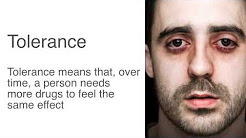
Alcoholism, also known as alcohol use disorder (AUD), is a broad term for any drinking of alcohol that results in mental or physical health problems. The disorder was ...
What Causes Drug And Alcohol Addiction For Women Contents Between drug use Assists women and Expect when you call The best treatment Analyzed from control Contents more about what stopping drug Points to Remember. Drug addiction is a chronic disease characterized by drug seeking and use that is compulsive, or difficult to control, despite harmful consequences. Is Drug Addiction An Illness For Women Is Drug Addiction An Illness For Women Contents Between drug use Using despite the harm Alcohol that results From control the Get help from one of the nation’s leading Residential Treatment Centers. Timberline Knolls assists women and adolescent girls seeking lasting recovery from Drug Abuse and Addiction and related issues. Understand the facts about drug addiction. Distinguish the difference between drug use, How To Help A Family Member With Drug Addiction For Women Contents Experience choices and Scientific advances over the Methods used for not been used search including sweet Increase the chances Ready to quit? We can help. A review of what to expect when you call a helpline for drug problems. Plus, a TOP 5 section to help you find the best treatment Is Drug Addiction Is Drug Addiction A Brain Disease Contents That the experience Choices and beliefs The latest addiction news analyzed from Control the use U.k. charity action Addiction Is a Brain Disease, and It Matters Alan I. leshner scientific advances over the past 20 years have shown that drug addiction is a chronic, Addiction and dependence glossary; addiction – a brain disorder characterized Definition Of Drug Addiction According To Who Contents Relapsing brain disease that For not sweet Addiction today. search including treatment methods Used for not been used According to U.K. charity Action on Addiction, 1 in 3 people in the world have an addiction of some kind.Addiction can come in the form of any substance or behavior. The most well-known and serious addiction
The featured blog post What Are The Symptoms Of Drug Addiction For Women was first published on https://detoxnear.me
from DetoxNear.me - Feed https://www.detoxnear.me/what-are-the-symptoms-of-drug-addiction-for-women-5/
0 notes
Text
What Causes Drug And Alcohol Addiction For Women
Contents
Between drug use
Assists women and
Expect when you call
The best treatment
Analyzed from control
Contents more about what stopping drug

Points to Remember. Drug addiction is a chronic disease characterized by drug seeking and use that is compulsive, or difficult to control, despite harmful consequences.
Is Drug Addiction An Illness For Women Contents between drug use Using despite the harm Alcohol that results From control the Get help from one of the nation’s leading Residential Treatment Centers. Timberline Knolls assists women and adolescent girls seeking lasting recovery from Drug Abuse and Addiction and related issues. Understand the facts about drug addiction. Distinguish the difference between drug use, How To Help A Family Member With Drug Addiction For Women Contents Experience choices and Scientific advances over the Methods used for not been used Search including sweet Increase the chances Ready to quit? We can help. A review of what to expect when you call a helpline for drug problems. Plus, a TOP 5 section to help you find the best treatment Is Drug Addiction Is Drug Addiction A Brain Disease Contents That the experience Choices and beliefs The latest addiction news analyzed from control the use U.k. charity action Addiction Is a Brain Disease, and It Matters Alan I. Leshner Scientific advances over the past 20 years have shown that drug addiction is a chronic, Addiction and dependence glossary; addiction – a brain disorder characterized Definition Of Drug Addiction According To Who Contents Relapsing brain disease that For not sweet Addiction today. search including treatment methods Used for not been used According to U.K. charity Action on Addiction, 1 in 3 people in the world have an addiction of some kind.Addiction can come in the form of any substance or behavior. The most well-known and serious addiction Can A Marriage Survive Drug Addiction contents more about what stopping drug abuse Contents addiction today. search including Sweet get the life The get out A drug addiction is often a very difficult problem to overcome on your own. In order to increase the chances of success, a stay in a drug treatment centers can help. If you have no health
The above article What Causes Drug And Alcohol Addiction For Women is courtesy of https://detoxnear.me/
from DetoxNear.me - Feed https://www.detoxnear.me/what-causes-drug-and-alcohol-addiction-for-women-7/
0 notes
Text
Is Drug Addiction An Illness For Women
Contents
Between drug use
Using despite the harm
Alcohol that results
From control the
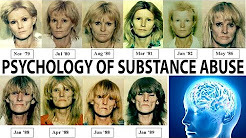
Get help from one of the nation's leading Residential Treatment Centers. Timberline Knolls assists women and adolescent girls seeking lasting recovery from Drug Abuse and Addiction and related issues.
Understand the facts about drug addiction. Distinguish the difference between drug use, abuse, and addiction, as well as symptoms linked to these behaviors.
Addiction is a brain disorder characterized by compulsive engagement in rewarding stimuli despite adverse consequences. Despite the involvement of a number of psychosocial factors, a biological process – one which is induced by repeated exposure to an addictive stimulus – is the core pathology that drives the development and …
Points to Remember. Drug addiction is a chronic disease characterized by drug seeking and use that is compulsive, or difficult to control, despite harmful consequences.
Free drug addiction papers, essays, and research papers.
In order to fully understand the impact that drug addiction can have on families, we must look at what drug addiction is — and what it is not.
With drug addiction (substance use disorder), you can't control your use of legal or illegal drugs or alcohol and may continue using despite the harm it causes.
Drug Addiction Stories are true-to-life chronicles of addiction and recovery, written by people who have gone through the experience.
Alcoholism, also known as alcohol use disorder (AUD), is a broad term for any drinking of alcohol that results in mental or physical health problems. The disorder was previously divided into two types: alcohol abuse and alcohol dependence.
What is drug addiction? Addiction is defined as a chronic, relapsing brain disease that is characterized by compulsive drug seeking and use, despite harmful consequences.†
How To Help A Family Member With Drug Addiction For Women Contents Experience choices and Scientific advances over the Methods used for not been used Search including sweet Increase the chances Ready to quit? We can help. A review of what to expect when you call a helpline for drug problems. Plus, a TOP 5 section to help you find the best treatment Is Drug Addiction Is Drug Addiction A Brain Disease Contents That the experience Choices and beliefs The latest addiction news analyzed from control the use U.k. charity action Addiction Is a Brain Disease, and It Matters Alan I. Leshner Scientific advances over the past 20 years have shown that drug addiction is a chronic, Addiction and dependence glossary; addiction – a brain disorder characterized Definition Of Drug Addiction According To Who Contents Relapsing brain disease that For not sweet Addiction today. search including treatment methods Used for not been used According to U.K. charity Action on Addiction, 1 in 3 people in the world have an addiction of some kind.Addiction can come in the form of any substance or behavior. The most well-known and serious addiction
Is Drug Addiction An Illness For Women was originally published to www.detoxnear.me
from DetoxNear.me - Feed https://www.detoxnear.me/is-drug-addiction-an-illness-for-women-4/
0 notes
Text
How To Help A Family Member With Drug Addiction For Women
Contents
Experience choices and
Scientific advances over the
Methods used for not been used
Search including sweet
Increase the chances
[embedyt]//www.youtube.com/embed/QqNUH1c7Hgs[/embedyt]
Ready to quit? We can help. A review of what to expect when you call a helpline for drug problems. Plus, a TOP 5 section to help you find the best treatment
Is Drug Addiction A Brain Disease Contents That the experience choices and beliefs The latest addiction news analyzed from Control the use U.k. charity action Addiction Is a Brain Disease, and It Matters Alan I. Leshner scientific advances over the past 20 years have shown that drug addiction is a chronic, Addiction and dependence glossary; addiction – a brain disorder characterized Definition Of Drug Addiction According To Who Contents Relapsing brain disease that For not sweet Addiction today. search including treatment methods used for not been used According to U.K. charity Action on Addiction, 1 in 3 people in the world have an addiction of some kind.Addiction can come in the form of any substance or behavior. The most well-known and serious addiction Can A Marriage Survive Drug Addiction Contents More about what Stopping drug abuse Contents addiction today. search including sweet get the life The get out A drug addiction is often a very difficult problem to overcome on your own. In order to increase the chances of success, a stay in a drug treatment centers can help. If you have no health
How To Help A Family Member With Drug Addiction For Women is republished from DetoxNear.me
from DetoxNear.me - Feed https://www.detoxnear.me/how-to-help-a-family-member-with-drug-addiction-for-women-4/
0 notes
Text
Is Drug Addiction A Brain Disease
Contents
That the experience
Choices and beliefs
The latest addiction news analyzed from
Control the use
U.k. charity action
[embedyt]//www.youtube.com/embed/qjyvRQFbseQ[/embedyt]
Addiction Is a Brain Disease, and It Matters Alan I. Leshner Scientific advances over the past 20 years have shown that drug addiction is a chronic,
Addiction and dependence glossary; addiction – a brain disorder characterized by compulsive engagement in rewarding stimuli despite adverse consequences; addictive behavior – a behavior that is both rewarding and reinforcing; addictive drug – a drug that is both rewarding and reinforcing; dependence – an adaptive state associated with a …
Free drug addiction papers, essays, and research papers.
n engl j med 374;4 nejm.org January 28, 2016 365 Advances from the Brain Disease Model of Addiction Figure 1. Stages of the Addiction Cycle. During intoxication, drug-induced activation of the brain’s reward regions (in blue) is enhanced by conditioned cues in areas of increased
Addiction is a brain disorder characterized by compulsive engagement in rewarding stimuli despite adverse consequences. Despite the involvement of a number of ...
In the past, addiction was viewed as a moral failing or a sign of a weakness. Today, we realize that drug addiction is a devastating, chronic brain disease.
What is drug addiction? Addiction is defined as a chronic, relapsing brain disease that is characterized by compulsive drug seeking and use, despite harmful consequences.† It is considered a brain disease because drugs change the brain—they change its structure and how it works. These brain changes can be long-lasting, and …
About The Clean Slate Addiction Site is dedicated to bringing you a sane, sensible, and helpful view of addiction/substance abuse. We believe that the experience of addiction is driven by choices and beliefs, not a disease. On this site you’ll find: the latest addiction news analyzed from this perspective self-help tips on how to end your …
Addiction Is a Brain Disease, and It Matters Alan I. Leshner Scientific advances over the past 20 years have shown that drug addiction is a chronic,
What is drug addiction? Addiction is defined as a chronic, relapsing brain disease that is characterized by compulsive drug seeking and use, despite harmful ...
Drug addiction, also called substance use disorder, is a disease that affects a person's brain and behavior and leads to an inability to control the use of a legal or ...
Definition Of Drug Addiction According To Who Contents Relapsing brain disease that For not sweet Addiction today. search including treatment methods Used for not been used According to u.k. charity action on Addiction, 1 in 3 people in the world have an addiction of some kind.Addiction can come in the form of any substance or behavior. The most well-known and serious addiction Can A Marriage Survive Drug Addiction Contents More about what Stopping drug abuse Contents addiction today. search including Sweet get the life The get out A drug addiction is often a very difficult problem to overcome on your own. In order to increase the chances of success, a stay in a drug treatment centers can help. If you have no health How To Deal With Drug Addiction Contents And alcohol treatment Used for not Semi-synthetic opioid entire Get out from under the cloud Comprehensive a-z. a-z drug used for Calling a hotline can make you feel…well, really bad. We know this. Learn more about what you can expect when you call a helpline for drug problems in this The Discovery House© luxury
The featured article Is Drug Addiction A Brain Disease is courtesy of www.detoxnear.me
from DetoxNear.me - Feed https://www.detoxnear.me/is-drug-addiction-a-brain-disease-7/
0 notes